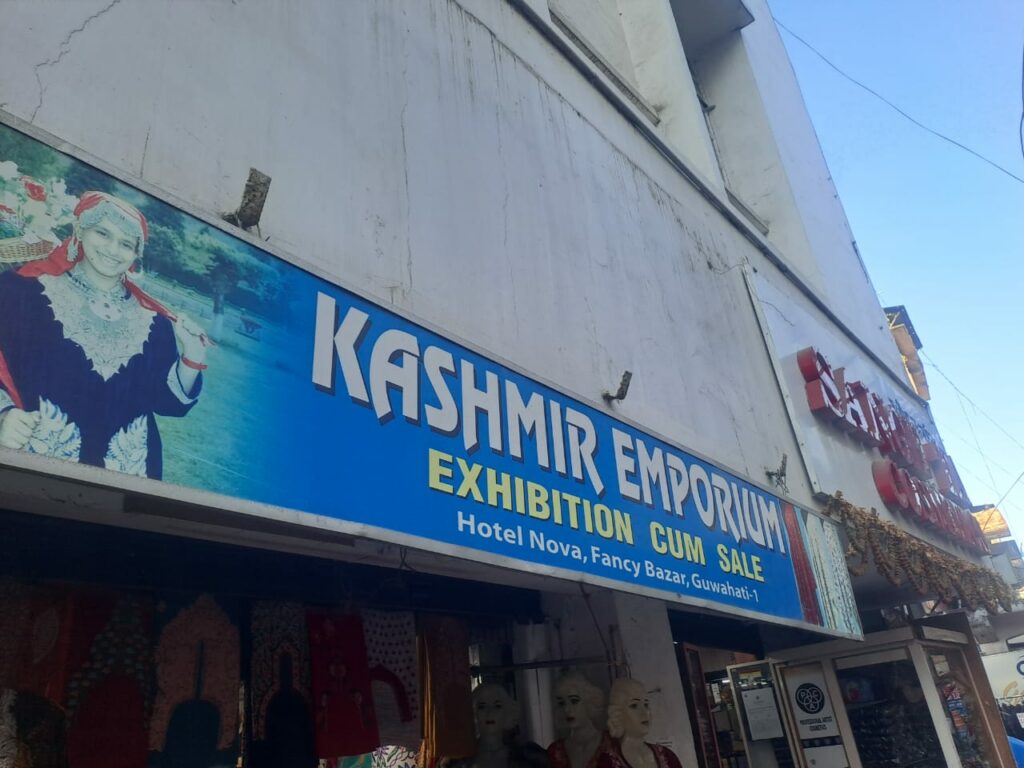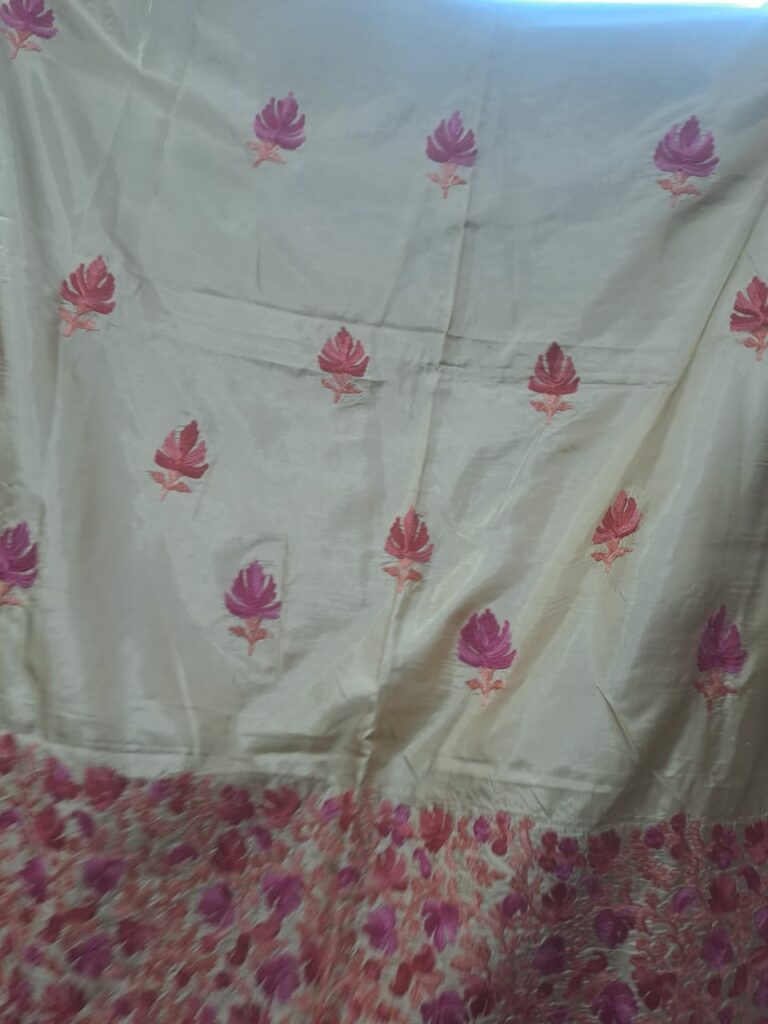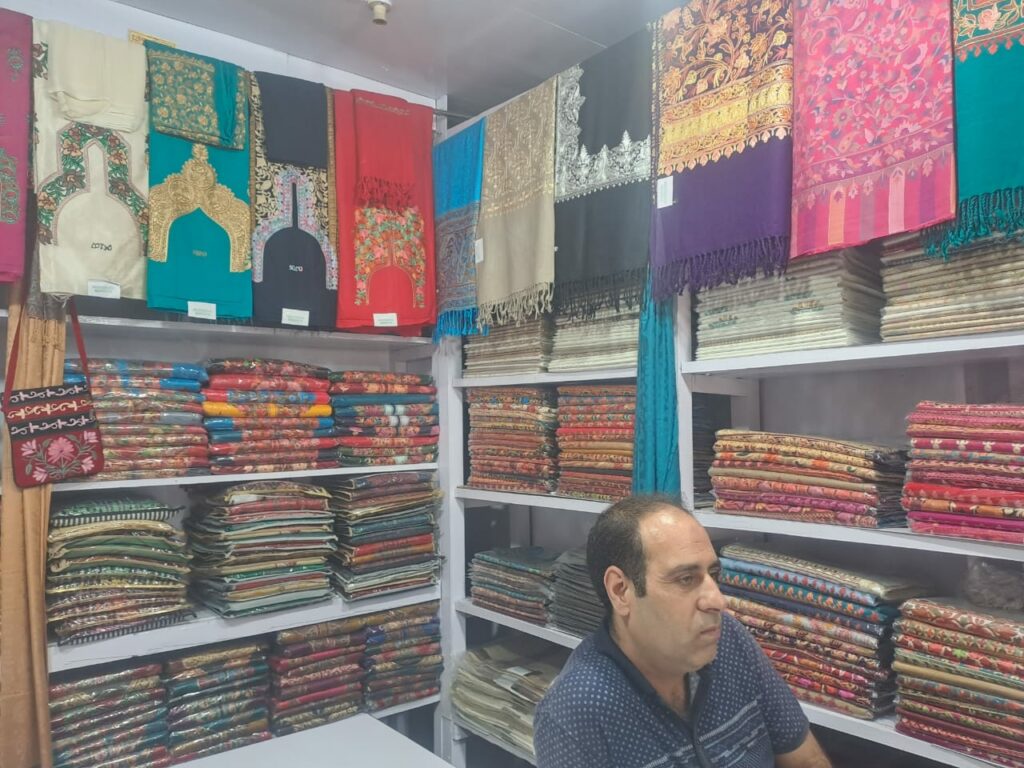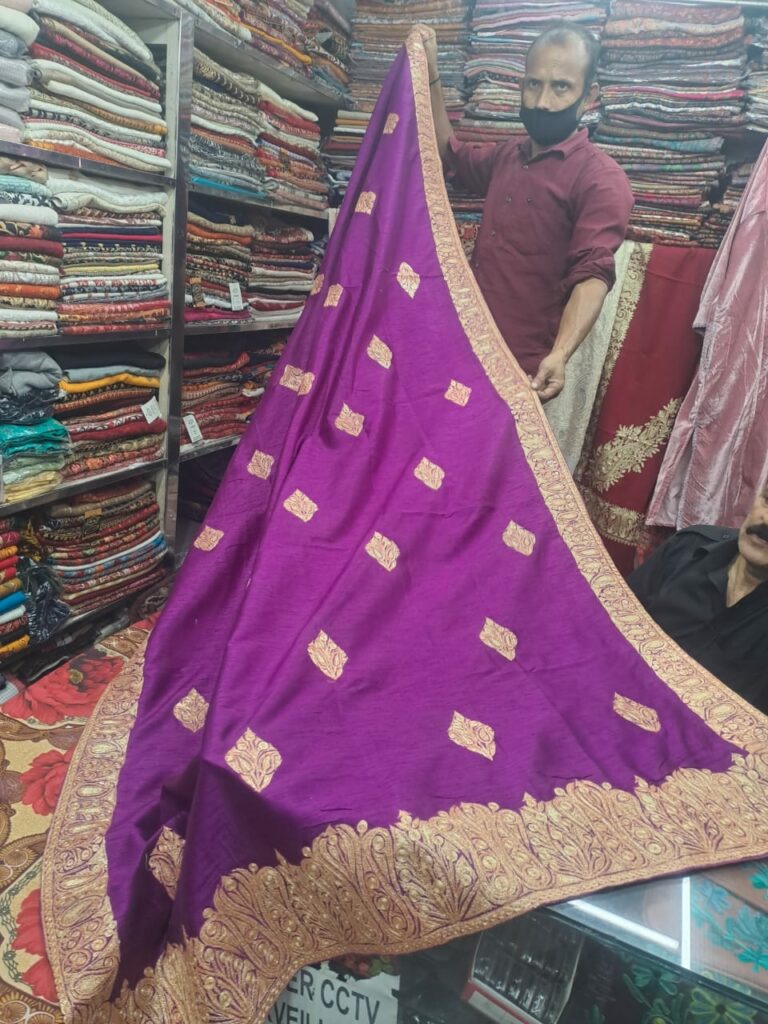Spread the love
Guwahati: Mekhela Sador, a traditional attire worn by the women of Assam, has been given a new touch by the Kashmiri Traders.

Use of various silks for weaving is providing our traditional clothing a significant makeover, from Assamese mekhela sador in the lehenga style to its pattern imprints on home décor goods. It is no longer restricted to a saree fragment.

Asam's capital city of Guwahati has undergone one such unusual makeover. Now, Kashmiri Mekhela Sadors made from Kashmiri silk yarn have been modified from Assamese Mekhela Sadors.
After a string of business setbacks, Kashmiri traders have now returned to Guwahati's marketplaces.
Business-Northeast met with a handful of the Kashmiri vendors who have been peddling this idea in Guwahati for some time.
This month, Mohammad Ali, the proprietor of Kashmir Emporium, has established contact with the shops in Guwahati's Fancy Bazar neighbourhood in an effort to market their goods. He told Business- Northeast that this year, Kashmiri Mekhela Sador has seen a strong demand among Assamese people.

According to Ali, the silk used to weave the Kashmiri Mekhala Sador originates from Kashmir.
Since a very long time ago, Kashmiri traders have ventured to different regions of the nation to begin trading. They have, however, shifted their focus to Assam after seeing the growing demand for Kashmiri products.
It has been a seasonal business with daily earnings ranging from Rs. 2000 to Rs. 5000. In Assam, they mostly serve youthful and middle-aged clientele.
Although Kashmiri shopkeepers usually start selling their wares in October, this year they were delayed because of the huge increase of visitors visiting their region.
In comparison to Kashmir, Guwahati has a 10% higher price point for their goods. Weaving is a habit carried out by the ladies of Kashmir, according to Kashmiri trader Ali. They have yet to get any government support for their operation.
Also, he discusses their company's operations, which are present not only in Dubai and Nepal but also in the United States of America.
Aside from Assamese mekhela sador, they also sell Kashmiri carpets, shawls, paper meshi, wood carvings, leather, and other winter clothing.
Typically, the Kashmiri traders spend 3–4 months in Guwahati. Assamese people have highly distinctive fashion tastes. In order to stay up with the current trends, they constantly change their designs.
The Kashmir Emporium has been operating in Guwahati since 1991, mentions Ali. However, when the winter sale is done, the traders go back to Kashmir.
The owner of another business, Kashmir Handloom, Faiyaz Ahmad Wani, is in Guwahati for the sales and plans to stay for the next five months. However, they haven't been able to generate strong revenues from it.
He stated to Business-Northeast that his company does not require any government assistance to operate.
The Directorate of Handicrafts and Handloom Jammu's statistical officer was also interviewed by Business-Northeast.
According to Mukesh Verma, there are several programmes that the weavers in Jammu and Kashmir may take advantage of. Important programmes include the Credit Card Scheme, Weaver Mudra, and Financial Support, which requires two payments of Rs. 1,00000.
They aid in the upbringing of the children of weavers. 35,000 weavers work together in Jammu. He claims that the Ministry of Textiles runs several programmes to help people make a living. For the sake of promoting the weaver's goods, they even plan events like melas. He continues by saying that the craftspeople receive subsidies from the ministry of textiles.
Imtiyaz Ahmed Dar, an Extension Officer of Industries and Commerce, Directorate of Handloom and Handicrafts, Kashmir, told Business-Northeast that in addition to receiving a weaver's credit card in both Jammu and Kashmir, weavers also have the option of applying for a share capital loan, which they can use to launch their own start-up.
The same must be paid back in 10 equal payments. In order to cover the COVID Pandemic, Rs. 1,00000 was also given to the Kashmiri weavers. In each district, they have set up a number of awareness camps inside blocks. Hawker's cards are supplied to street vendors as identification whether they are in Kashmir or elsewhere.
However, the Kashmiri businessmen in Assam are unfamiliar with the loans and incentives offered there.
But Kashmiri traders have found a strong audience in Assam and continue to visit every year with their traditionally weaved goods.
According to Kashmir Emporium owner Mohammad Ali, the affection they have got in Assam motivates them to visit every year.
Another Kashmiri trader, Umar Riyaz of Kashmir Handloom, also had a similar experience in Assam. He recalls that two years ago, one of his customers asked him to transform the Mekhela Sador into Kashmiri design. He spent a year laboriously transforming the Assamese Mekhela Sador into a Kashmiri Mekhela Sador, which required a lot of effort. With the piece, he received Rs. 10,000. And in the same year, he made between 70,000 and 80,000 rupees in a single week.

The Guwhaati market has taken a like to the Assamese Mekhela Sador's new appearance.
In an effort to please their consumers, the Kashmiri traders stated “ they recreate their products every year with fresh ideas.
The linkage between Assamese and Kashmiri traders could provide the weaving industry a fresh perspective. with the implementation of new trends and fresh looks.
ALSO READ: GST Council to conduct 48th meeting on December 17